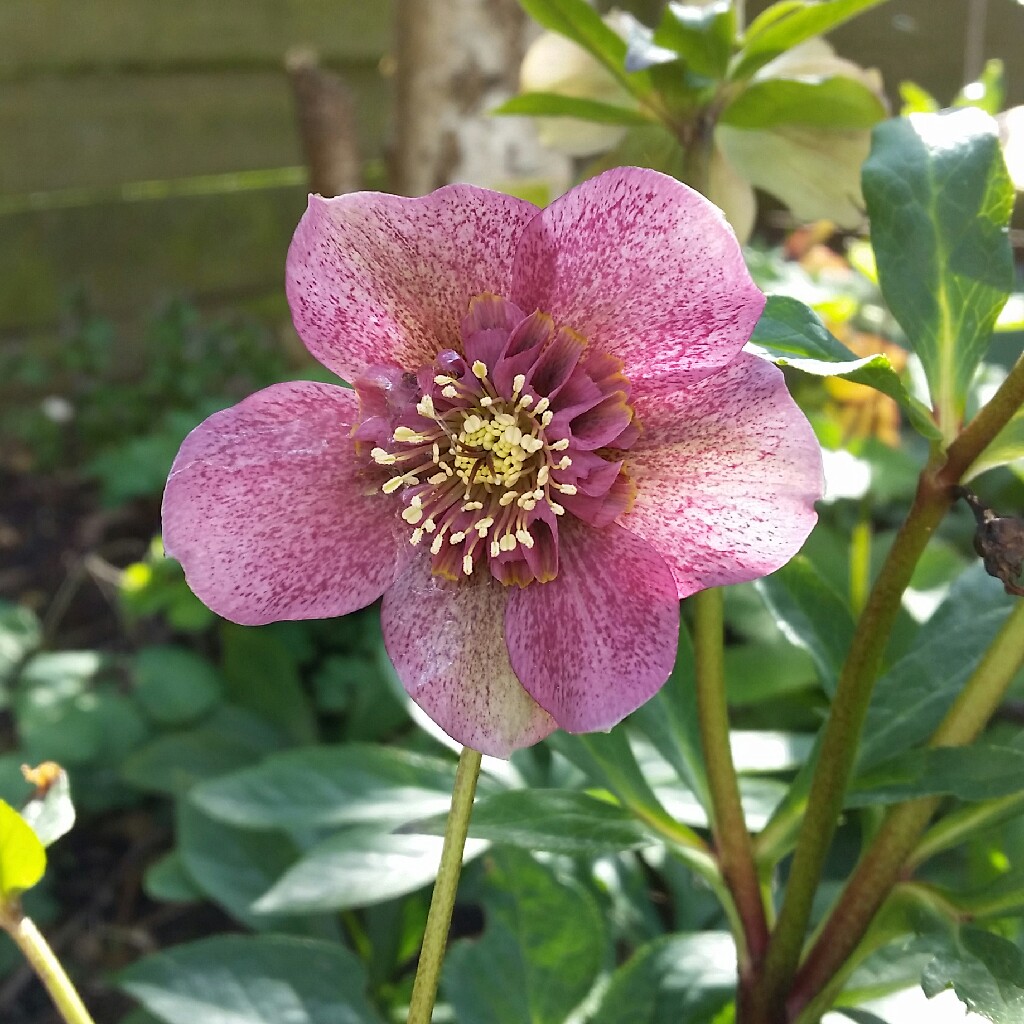
Helleborus x hybridus 'Tutu'
Hellebore 'Tutu'
Hellebores (also known as Lenten Rose, Winter Rose or Christmas Roses) are a group of herbaceous perennials and are in the Ranunculaceae family. They originate from various parts of Asia and Europe, many are evergreen and some have marbled or interesting foliage. They usually produce flowers from late autumn through to early spring and can be found in a wide range of colours and shades in both single and double flowers. They prefer fertile and free draining soil but not in full sun. The sepals do not fall as petals would, but remain on the plant, sometimes for many months. Many species are commonly grown in gardens, and many cultivars are also available. Helleborus x hybridus is now the recognised name for any artificial hybrid of hellebore that does not involve the species Helleborus argutifolius, Helleborus lividus and Helleborus foetidus. Quite often it includes hybrids of Helleborus orientalis, and many cultivated forms are now available. 'Tutu' has large pink flowers with an anemone centre.
Contributed by @Hellebore
-
Partial shade
-
Occasional watering
-
Frost Hardy: 23F (-5°C)
-
Free draining and fertile
Common name
Hellebore 'Tutu'
Latin name
Helleborus x hybridus 'Tutu'
type
Herbaceous Perennial
family
Ranunculaceae
ph
7.0 - 8.5 Acid - Neutral
Plant & bloom calendar
-
Best time to plant
-
When the plant will bloom
full grown dimensions
 0.40 M
0.50 M
0.40 M
0.50 M
Helleborus x hybridus 'Tutu'
Hellebores (also known as Lenten Rose, Winter Rose or Christmas Roses) are a group of herbaceous perennials and are in the Ranunculaceae family. They originate from various parts of Asia and Europe, many are evergreen and some have marbled or interesting foliage. They usually produce flowers from late autumn through to early spring and can be found in a wide range of colours and shades in both single and double flowers. They prefer fertile and free draining soil but not in full sun. The sepals do not fall as petals would, but remain on the plant, sometimes for many months. Many species are commonly grown in gardens, and many cultivars are also available. Helleborus x hybridus is now the recognised name for any artificial hybrid of hellebore that does not involve the species Helleborus argutifolius, Helleborus lividus and Helleborus foetidus. Quite often it includes hybrids of Helleborus orientalis, and many cultivated forms are now available. 'Tutu' has large pink flowers with an anemone centre.
Flowering Season (Winter/Spring)
From Late Winter TO Late Spring
Hellebores also known as Lenten Rose, Winter Rose or Christmas Rose come in many colours from pure white, greens in many shades, pink, yellow to deep purple, they can be single flowers or double.
Planting Season (Autumn)
From Mid Autumn TO Late Autumn
Plant out container grown plants into a semi shaded site in autumn that is fertile but free draining.
Propagation by Seed (Summer)
From Early Summer TO Mid Autumn
Sow seeds, usually in early summer, in boxes or pans of sandy soil and place them in a cold frame. Prick off the seedlings into a nursery bed and they will be ready for planting out in their permanent positions in the autumn of the following year.



















